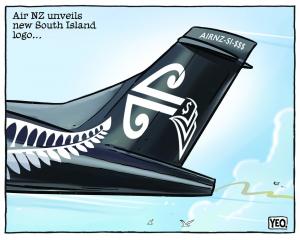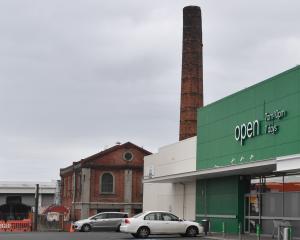The drawn-out saga that is the Invermay Agricultural Centre debacle could be close to complete.
Ministerial approval has been given to Crown Research Institute AgResearch to go ahead with its restructuring.
A total of 56 jobs are heading north to Lincoln, and Dunedin is losing an important part of its science research capability.
Since AgResearch announced plans to move 85 jobs from Invermay as part of it "Future Footprint'' restructuring in August 2013, it has been an agonising time.
Many of the best staff have simply left, robbing AgResearch of it primary asset, top scientists.
The informal genomics hub in the city has been ripped apart as AgResearch pushed ahead with its wasteful and unwise programme.
A hoof was thrown Invermay's way through a change in the restructuring plan in 2014 when it was decided deer research would stay at Invermay, but the crucial genomics programme is going north.
According to Science and Innovation Minister Steven Joyce, the restructuring will modernise AgResearch's facilities and co-locate research staff doing complementary work at the Palmerston North and Lincoln campuses.
About 199 staff positions are planned for relocation over the next four years as part of the plan, 83 fewer than in the original proposal.
AgResearch is investing tens of million of dollars in new buildings at Lincoln and endeavouring to build up the research hub there, including genomics.
But that will mean the relatively new and expensive laboratories at Invermay will be mostly idle and the existing "hub'' in Dunedin gutted.
Invermay has a proud record in sheep gene work and the University of Otago a wide range of genetic and biological expertise across several departments.
It has shared facilities with Invermay as part of the collaboration.
There are also private enterprise partners in Dunedin.
There remains a strong feeling much of the reorganisation was not about what was best for AgResearch and science but involved personalities and power.
A former AgResearch head, Andrew West, became vice-chancellor at Lincoln.
His university became the beneficiary of new facilities and the new hub.
By the time he left Lincoln, suddenly last June and three years into a five-year contract, the Future Footprint plans were well advanced.
There have also been questions about potential conflicts of interest with AgResearch board members.
Early in the process AgResearch's own change management team, while supporting most planned changes, found, for scientific and commercial reasons, it made more sense to grow Invermay rather than shift the majority of its scientists to Lincoln.
Then there is the foolishness of yet more centralisation.
Pushing more jobs to Christchurch just adds to its strain and housing issues, while excess capacity abounds elsewhere.
Dunedin North MP David Clark has been working assiduously on the matter and this week strongly indicated Labour would overturn the decision if elected next year.
The fear must be that, although the restructuring will not be complete until 2018, it will be too late after the election next year to effect a reversal.
Invermay's plight was one of the specific southern issues which could well have bolstered Labour's southern party vote in 2014.
Invermay numbers had already slipped to 91 by September last year and will be down to 35 by the time the restructuring is completed.
Will a lack of critical mass mean the centre withers?
What must be hoped is that the remnants, plus the University of Otago, plus private scientists in Dunedin along with Dunedin business can win contracts to rebuild this significant aspect of science in the South.
AgResearch and the Government have failed to take heed of what is best for agriculture, science and research.
Both New Zealand and the South will suffer as a consequence.












